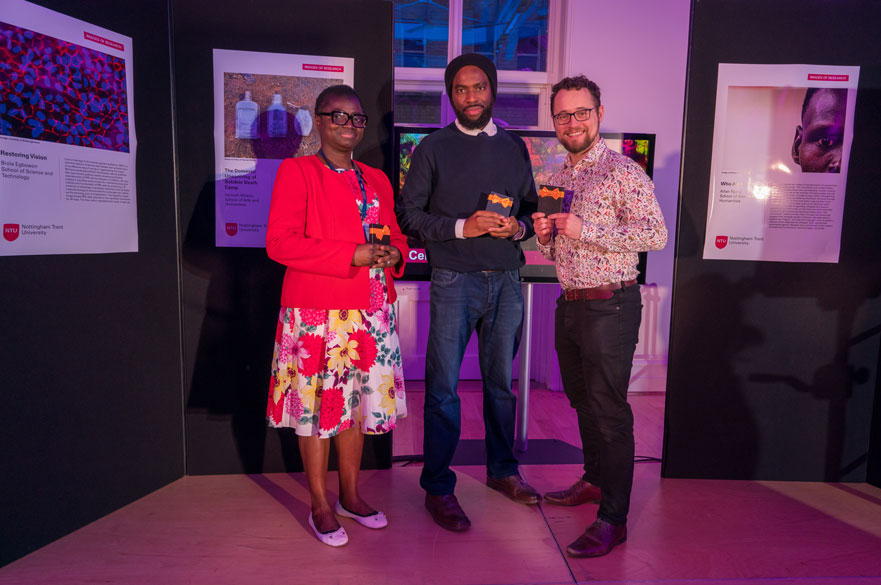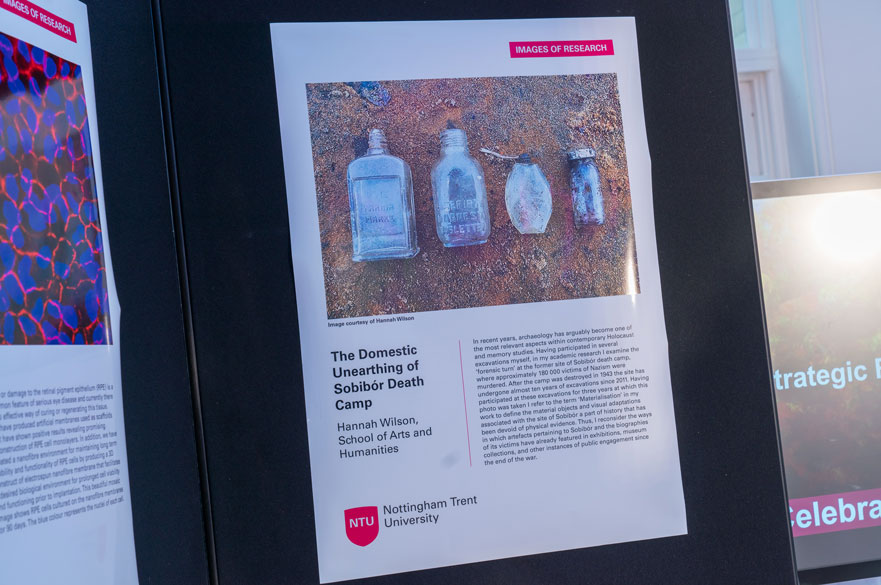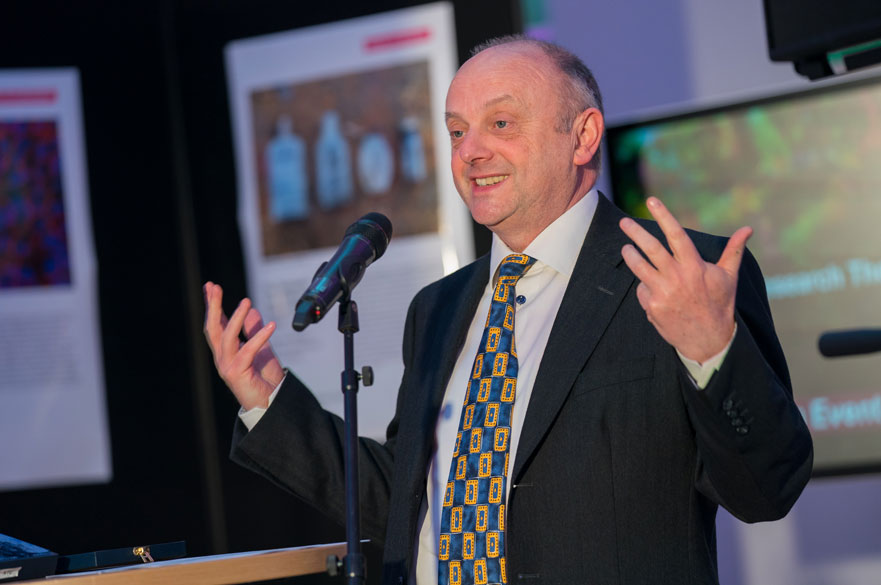Images of Research Competition highlights solutions to important societal challenges
Hannah Wilson from the School of Arts and Humanities took home the win with her striking image of items found at the Sobibór death camp following archaeological excavations as part of her PhD research.
By Ale Wall | Published on 22 February 2022
Categories: Research; School of Animal, Rural and Environmental Sciences; School of Architecture, Design and the Built Environment; School of Art & Design; School of Arts and Humanities; Nottingham Business School; Nottingham Institute of Education; NTU Doctoral School; Nottingham Law School; School of Science and Technology; School of Social Sciences;

The first Images of Research Competition was launched in 2019. The competition offers researchers across the University the chance to share their research using a single image – either a photograph, digital image, or digital artwork – along with an engaging short description. The second iteration of the competition was launched in 2020, however the winner's ceremony was delayed until 2022 due to the Covid-19 pandemic.
The competition is designed to highlight the breadth of research at NTU, illustrating the diversity of both the individuals involved in research and their research areas. The aim is to engage non-specialists in NTU’s broad research landscape, and to capture the essence of our complex research projects in an accessible manner.
The competition was a great success with over forty entries submitted overall. The judging panel was comprised of Professor Nigel Wright, former Deputy Vice-Chancellor of Research & Innovation, Rebekah Smith-McGloin, Director of the Doctoral School & Research Operations, Emma Leech, Director of Marketing & Communications, and Charles Fox, Lecturer in Photography at Nottingham School of Art & Design. Their decisions were announced at a celebration event on Tuesday March 1st at NTU’s Strategic Research Themes Conference.
Postgraduate researcher Hannah Wilson, from the School of Arts and Humanities, was named the winner for her submission ‘The Domestic Unearthing of Sobibór Death Camp’. Two runners-up were also recognised on the evening – 2019's winner Kyle Baldwin, Senior Lecturer in Physics from the School of Science and Technology, and Postgraduate Researcher from the School of Arts and Humanities, Allan Njanji. The winner of the public vote was Technical Specialist Biola Egbowon from the School of Science of Technology with 17% of the votes.

Overall winner Hannah Wilson's image
On her win, Hannah commented:
“I was elated to win! Having seen some of the previous entries of past years, I didn’t think I would have a chance. There is some incredible and innovative research being conducted at NTU, and I think that this kind of competition really reflects the breadth of this. My PhD research relies quite heavily on images as I am cataloguing and documenting material culture and private memories. Considering this, it felt appropriate to submit something and to share this important aspect of my research.
She adds: “My image was taken during field research at the archaeological excavations at Sobibór death camp. Sobibór was a former Nazi death camp in Eastern Poland, which functioned solely for mass killing. Archaeological excavations have taken place there now for over ten years, which I first joined in 2014. The photograph I submitted features four glass perfume and medicine bottles from one of the digs. This photograph documents the first time these artefacts have been seen or touched in over 75 years. I think that in postgraduate research, we become so focused on publishing and writing that we can forget that there are other ways to engage and explore our subject matter. Photography and visual culture can enable us to think about our topics in a more creative way – it's a great opportunity to explore your research interests through an exciting and compelling medium, and I would encourage all to apply for next year."

Vice Chancellor Edward Peck announcing winners
Baldwin, whose image of a blood droplet was captured as part of NTU Physics research into crime blood spatter analysis, with the hope of creating a rapid-response forensic diagnostic tool, said: “I was quite surprised to receive this award! Since doing my PhD research on drying droplets, I have been repeatedly struck by how varied and cool the structures left behind by drying droplets can be. This competition was both an opportunity to highlight the interesting droplet research being carried out at NTU, but also my work in droplet photography, as I regularly post my droplet artwork (or ‘Droplart’) on Instagram. By adding more focus on research imagery - rather than just focusing on research papers - we can make research more accessible and bring the public back into the conversation – which I believe is very important to the long-term future of scientific inquiry.”
Egbowon, whose research looks at producing artificial membranes that can help regenerate cells damaged by serious eye diseases, told us: “When I found out I won it was like a dream to me! It was a shock, but I was so excited and since then I have felt encouraged in my research. I was motivated to join the competition by seeing some of the interesting results we were having in our research, and I really wanted to create some public awareness for this novel piece of work. The use of photography to capture and present research topics is important – it quickly says something about the research and catches public attention quicker – and it makes the entire message become attractive and interesting!"
Njanji, whose research focuses on granting refugees and asylum seekers agency and voice, said: "It's wonderful being awarded a prize in this competition. I'm glad that the striking image in my poster 'Who am I?' evokes feelings of unease, as it's meant to serve as a prompt to consider refugee issues which are often neglected. In this regard, photography is a good medium for communicating research as it brings to an audience the real faces of people that are treated in dehumanising ways".